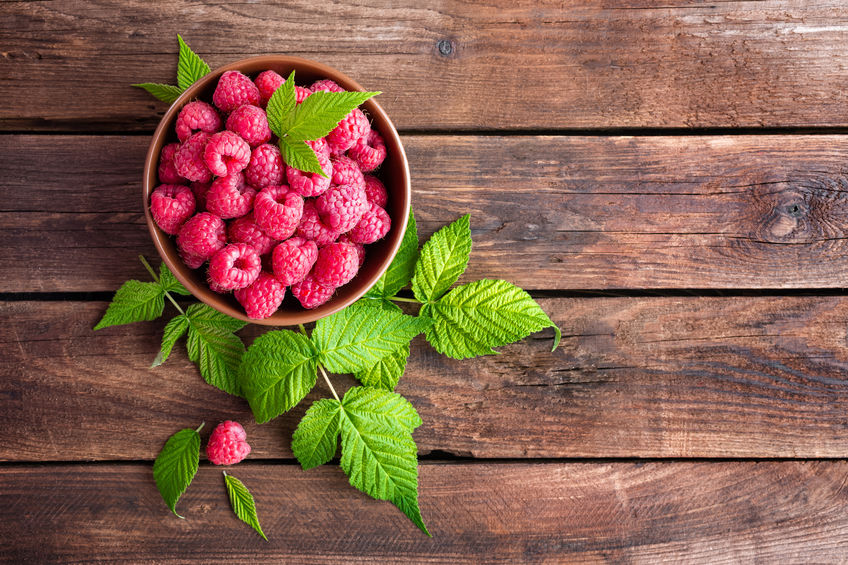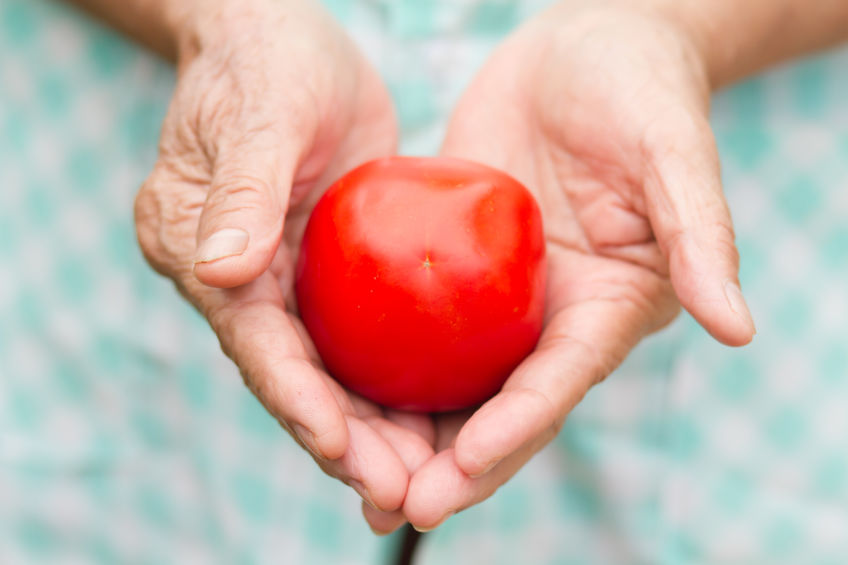There are two sides to inflammation. On one side of the coin, inflammation is beneficial and on the other side, it can be harmful. The immune system triggers inflammation in order to fight off infections, pathogens, and promote healing, which in most circumstances, is positive. However, when the immune system continues to fire off this response even when there is no threat of injury or harmful invaders, chronic or persistent inflammation can be detrimental to your health. Various health disorders like Alzheimer’s, arthritis, depression, and diabetes have been linked to persistent inflammation.
You may think the answer to fighting chronic inflammation lies in a medicinal drug, however, this form of treatment comes with its own set of problems. If you really want combat inflammation for good, the best place to start is at the grocery store. Medical professionals and nutritionists agree that choosing the right foods can help reduce the risk of developing diseases like cancer and diabetes.
If you are looking for a natural way to ease the pain and discomfort, here are the best anti-inflammatory foods to stock up on.
Tomatoes

The humble tomato has more to offer than what meets the eye. They are packed with beneficial nutrients that have powerful antioxidants and anti-inflammatory properties like Potassium, Vitamin C, and Lycopene to name a few.
Lycopene is a pigment that gives fruits like grapefruit, watermelon, and tomatoes their pink or red color and has been linked to various health benefits such as improved heart health and of course, it’s amazing ability to fight off inflammatory markers that are linked to various cancers.
In fact, one study outlines how the anti-inflammatory compounds were significantly decreased in overweight women after drinking tomato juice.
In order to reap all the anti-inflammatory benefits of Lycopene and ensure the body absorbs most of it, it’s best to cook tomatoes in a healthy fat such as olive oil to help increase its bioavailability.
Almonds
Almonds are incredibly rich in inflammation-fighting nutrients such as Manganese, Vitamin E, and Magnesium. Almonds are also loaded with healthy Monounsaturated Fats. According to research, almonds are just as effective at reducing inflammation as some statin drugs. Based on the evidence from another study, almonds also help to lower cholesterol levels and C-protein levels, which are inflammatory markers associated with an increased risk of cardiovascular disease.
Berries

Berries are touted for their deliciously, succulent flavor and incredible antioxidant properties. They are loaded with fiber, vitamins, minerals, and plant compounds, making it the perfect fruit to include in a well-rounded diet. There is a wide variety of berries available, but depending on where you live the most common variations include blackberries, blueberries, strawberries, and raspberries.
One of the many reasons why berries are recommended on any kind of anti-inflammatory diet is because they are rich in anthocyanins. Anthocyanins are plant compounds that give berries and other foods their rich blue, black, or red pigment. The compounds also act as a powerful antioxidant that helps fight against free radicals that are notorious for causing chronic inflammation in the body.
One study actually found that those who regularly ate strawberries have lower levels of inflammatory blood proteins that are known to cause heart disease. According to research, blueberries are also extremely effective at elevating natural NK or Natural Killer Cells (a type of white blood cell) in the body, which helps to fight infection, bacteria, and inflammation.
Grapes
Like berries, grapes are also rich in the inflammation-fighting compound – anthocyanins. As we mentioned before, anthocyanins are potent antioxidants that help to fight off free radicals and decrease inflammation markers that are directly linked to heart disease. But Grapes are also known for another magical anti-inflammatory compound – resveratrol.
Resveratrol produced by the plant when it is compromised by injury, bacteria, and pathogens, meaning that it is also a very powerful antioxidant. Both the resveratrol and anthocyanin compounds found in grapes are known to improve eye health and have also shown promise in reducing the risk of developing other disorders such as Alzheimer’s, diabetes, obesity, and heart disease.
One study found that various inflammation markers are significantly reduced in patients who have heart disease after drinking grape extract every day.
Fatty Fish
Fish such as tuna, mackerel, and salmon are a great source of Eicosapentaenoic acid (EPA) and Docosahexaenoic acid (DHA) Omega 3 fatty acids and protein. Our body is unable to produce Omega 3 fatty acids on its own, which is why it is essential to source it from our diets or through supplementation. According to various studies, eating a sufficient amount of Omega 3 reduces the risk of developing chronic conditions that are brought on by inflammation such as heart disease and certain cancers.
While there are other sources of Omega 3 such as nuts and other types of seafood, fatty fishes like tuna and salmon are still the best source of this essential fatty acid.
Sweet Potatoes
If you suffer from persistent inflammation, it may be time to switch out your regular white potatoes for sweet potatoes. Sweet potatoes are abundant in vitamins and minerals and are much lower in calories compared to their counterparts. Sweet potatoes are also a good source of Vitamin K and Beta-carotene – the plant compound that gives vegetables and fruits their orange pigment.
Beta-carotene also acts as a potent antioxidant that helps to reduce inflammation and protect cells from damage caused by oxidative stress. Other than keeping aches and pains away, the Beta-carotene content in sweet potatoes helps to improve lung health and helps to slow cognitive decline.
Foods That Promote Inflammation
You are not going to feel any difference in pain if you add these foods to your diet but don’t cut out all the foods that actually promote inflammation. If you really want to feel the full effect of an anti-inflammatory diet these are a few foods you want to avoid:
- Refined carbohydrates such as pasta, biscuits, sweetened breakfast cereal, bread, and white rice.
- Any type of junk food including pizza, fries, and other types of fast food.
- Sugary drinks such as sodas, sports drinks, and sweetened fruit juices.
- Trans fats and saturated fats such as margarine, snack foods, and some vegetable shortenings.
The Takeaway
Adding these nutrient-dense foods to your diet can help reduce inflammation and put a stop to the development of chronic illnesses in the long term. All roads always lead back to nutrition, which is why it is so important to address your diet instead of seeking relief from over the counter painkillers that are habit-forming and known to cause more harm than good in the long term. If you suffer from chronic inflammation, start switching out unhealthy foods like trans fats, junk foods, and refined carbs for healthier foods like tomatoes, grapes, sweet potatoes, and salmon.

